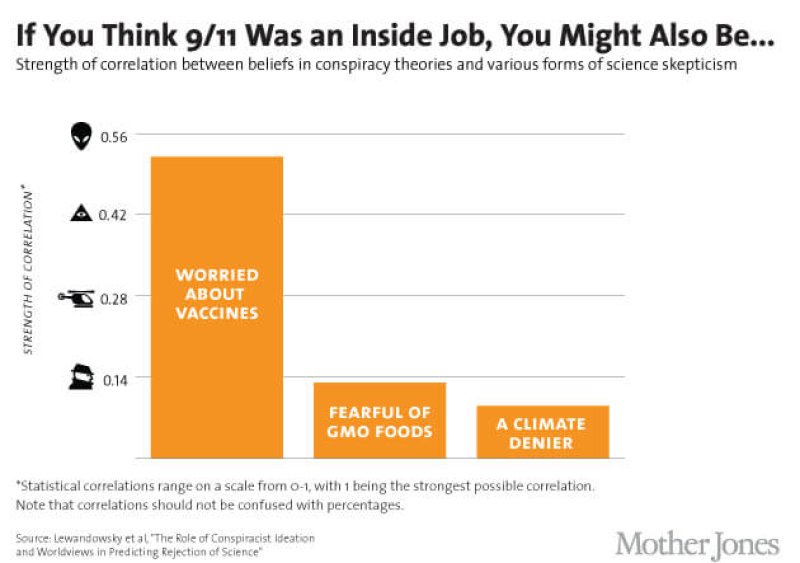(Summary)
In a new study published in PLOS ONE, a University of Bristol psychologist Stephan Lewandowsky found links between conspiratorial thinking and distrust of science. People who are considered conspiracy theorists are more likely to believe that vaccines cause autism or that GMOs are dangerous, despite what trustworthy government and independent agencies say on the matter. Some conspiracy theorists even say that these government agencies, like the American Association for the Advancement of Science, which has stated clearly that GM technology has been thoroughly tested and shown to be safe, are in on the conspiracy themselves.
Lewandowsky and his colleagues also looked into the politics of these beliefs and found that while more liberals tend to distrust vaccines, anti-GMO views were held by both parties.
Read the full, original story here: “If You Distrust Vaccines, You’re More Likely to Think NASA Faked the Moon Landings”
Additional Resources:































